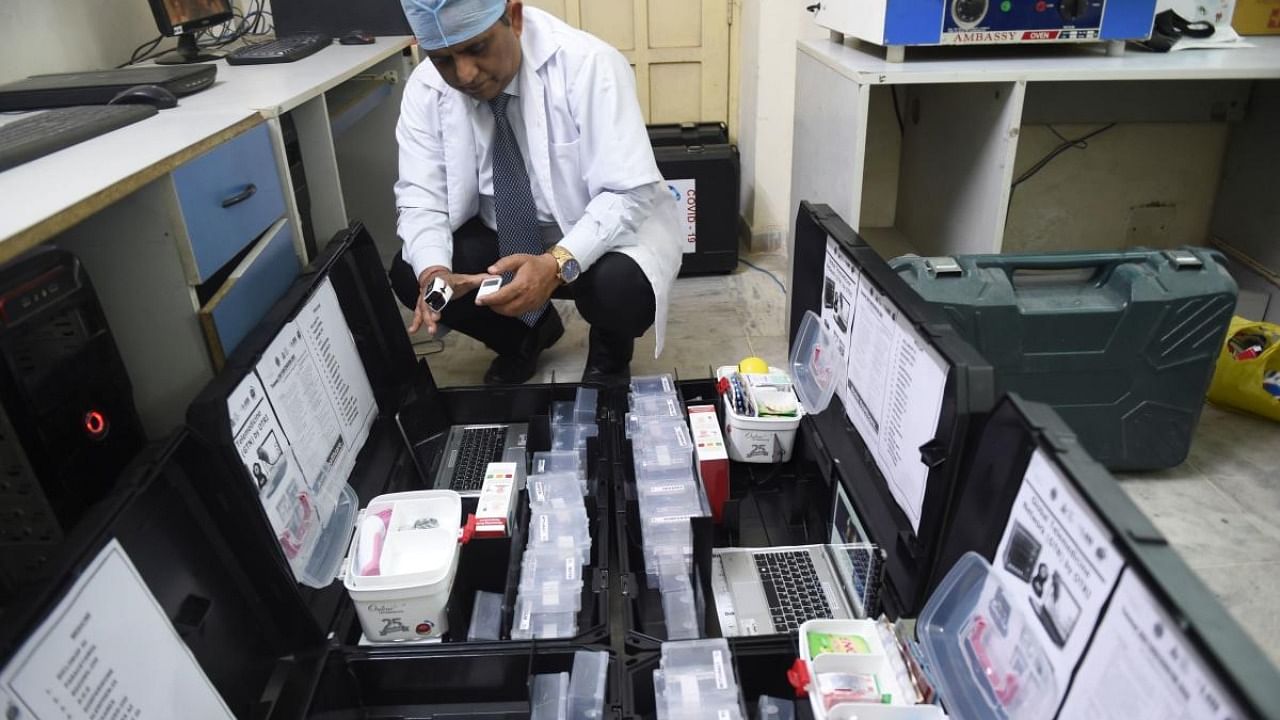
Many years ago, when I was working for one of India’s famous hospital groups at a senior management level, I was woken up at 2 am by the duty manager who informed me about a patient brought dead to the Emergency Response (ER). This was someone who had been discharged just two weeks ago after a successful surgery. The ER doctors informed me that the patient had most likely developed post-operative clinical depression which had gone unnoticed by the family. He jumped off the 15th floor of his apartment building. The police ruled out foul play. I remember spending the following week in distress thinking how such eventualities could be prevented.
Years later, as the vice-president of DayToDay Health, a Boston-based health tech startup, I saw a similar case where our clinical team providing care to a post-operative patient on the digital platform, picked up signs of clinical depression and suicidal ideation in the patient. This was picked up by the psychologist who is part of our multi-disciplinary team of doctors, nurses, nutritionists, clinical pharmacologists, physiotherapists, and respiratory therapists.
The intervention was done immediately by getting the patient appropriate treatment, keeping the surgeon in the loop. For the patient, it is like having the entire clinical team accessible at all times of the day or night, in the language that he or she speaks. The clinical team closely monitors the patient and picks up early warning signs if any and ensures appropriate and timely interventions which could’ve otherwise been missed. The team has detailed clinical dashboards for individual patients.
In simple terms, this is nothing but medical records that the clinical team would fill in the case sheet on daily rounds during hospitalisation. When the patient visits the hospital for a routine follow up, or even otherwise when required, the patient’s primary clinician gets access to these records at the click of a button. In fact, for surgical cases, even wound health can be monitored through the digital platform.
Our clinical team recently picked up early signs of surgical site infection through surgical image monitoring on the digital platform. Early intervention prevented a catastrophe since it was a case of an implant. It was years later, that I found a solution to the problem that had nagged me for almost a decade.
The possibilities of digital healthcare are immense. Doctors would agree that decision-making in medical practice is not always black and white. Pre and post hospitalisation are areas where the clinical care is left entirely to the patient and his/her caregivers. The clinical team in the hospital has very little visibility and no control over what happens in these phases. Appropriate care in both the pre and post hospitalisation phase has the potential to improve clinical outcomes, decrease morbidity, prevent readmissions, and thereby reduce the overall cost of treatment. Digital interventions play a critical role in bridging the gap in these areas. For optimum clinical outcomes, hospitals need to consider everything from what could have been done before the procedure to the entire continuum of care including post-discharge care.
Acute care management has emerged as a prominent area of interest. It offers huge potential for healthcare service providers to leverage their expertise in this domain. With digital interventions, patient care management, specifically acute, post-surgical, and out-of-hospital care have evolved systemically. According to Industry ARC’s report, the global acute care market is expected to reach $214.3 billion by 2025, growing at a 6.8% compound annual growth rate between 2020 and 2025.
More recently, digital interventions have shown their potential during the ongoing Covid-19 crisis. In April 2021, as the second wave of Covid-19 swept through India, the Remote Covid-19 Care Program of DTD, which had been developed and made widely available, was in high demand. One of the most significant lessons learned from the pandemic was that a sizable proportion of Covid-19-infected patients could be successfully treated at home using a combination of intelligent technology and a trained clinical team. We have had tremendous success managing asymptomatic and mildly symptomatic Covid cases on the digital platform since the pandemic began.
Lives have been saved by picking up early signs of deterioration and ensuring timely medical attention. In fact, we saw over a threefold rise in our patient numbers during the first and second waves of the pandemic. Recently, the startup has also introduced the Covid long haul care plan to handle the post-Covid sequelae that we are seeing and are likely to see increasingly as we go forward.
Over the past year, after the national telemedicine guidelines came into force, digital health tas turned out to be a boon. Routine OPD visits can be managed via the digital platform. With digital devices like ‘stemoscope’, doctors can hear heart, lung, and bowel sounds virtually. Further, in a country like ours, where rural medical care is found lacking, digital healthcare can help take medical care to the remotest areas. With many advancements like wearable devices, artificial intelligence and machine learning, there will soon be a paradigm shift in the way medical care is delivered.
With digital healthcare, not just the doctor, but an entire medical team can be accessed remotely. There will of course remain situations and cases which need to be handled within the confines of a hospital, however, we may see cases increasingly being handled through the digital platform. If done right, this will help reduce the burden on our stretched healthcare infrastructure. The days of, “the doctor will see you now” may just well be changing too, “the patient will see you now”! And like Eric Topol said, “the digital world has been in a separate orbit from our medical cocoon, and it’s time the boundaries be taken down.”
The writer is the vice-president of a Boston-based start-up.